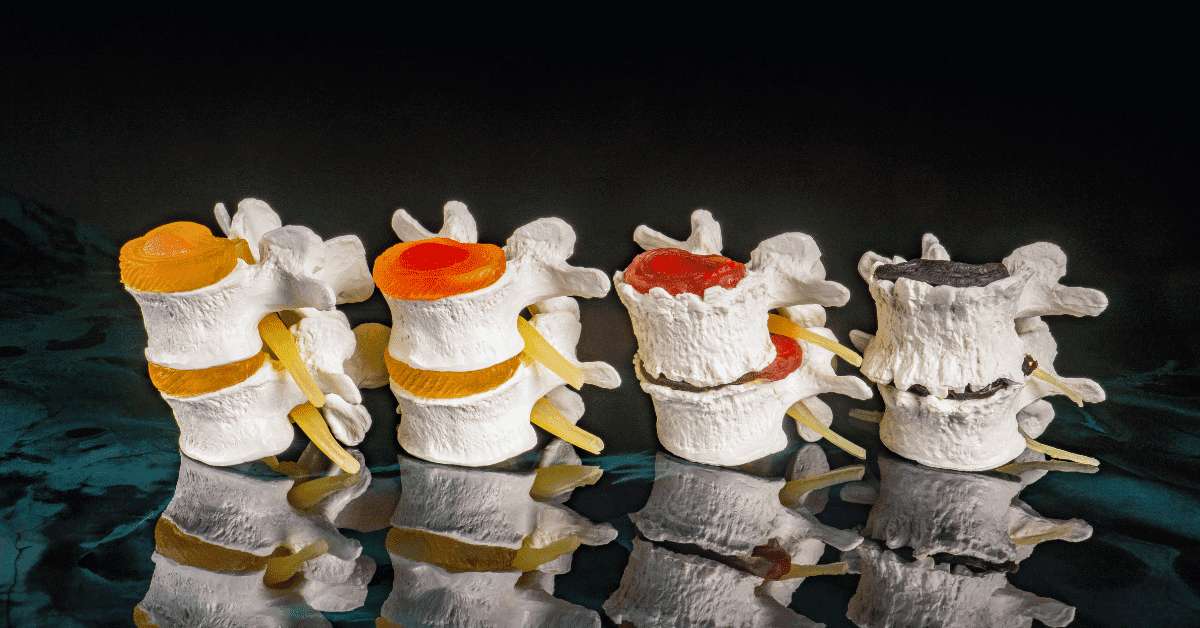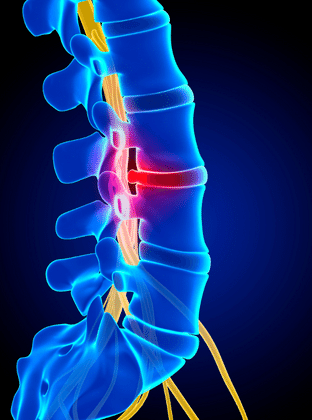- (213) 369-4583
- Monday - Friday
- 9 am - 5 pm
Bulging Disc vs Herniated Disc: Understand the difference

Dec 22, 2022

Herniated and Bulging Discs are some of the common causes of back pain in both young and old age. It is more common in old people because both occur due to the deterioration of the spine with age. Bulging disc and Herniated disc mean the same to most people but they are not. In what follows, you will learn the difference between a Bulging Disc and a Herniated Disc.
Schedule an appointment with a Neurosurgeon in Los Angeles: See Dr. Moksha Ranasinghe at Southern California Brain & Spine Surgery for the treatment of Bulging and Herniated Disc. You can book an appointment by calling (213)-369 4583 or filling out the contact form.
Structure of Spine
Let’s first understand the anatomy of the spine before we go on explaining the difference between Herniated and Bulging discs. You probably already know that the spine is composed of 33 bones (called vertebrae) stacked over one another. Between these bones, rubber-like fibrous discs are present allowing the vertebrae to slip over one another. Vertebrae and intervertebral discs together make the spinal column and are responsible for the smooth functioning of the spine while maintaining a limited range of motion.
Herniated Disc
The herniated disc gets its name from “hernias” which refers to an organ pushing through a muscle that holds it back. So a Herniated Disc is a condition in which gel-like fluid present in the center of the disc comes out by pushing the wall of the disc. In most cases, patients do not even know they have a Herniated Disc and feel no symptoms at all. However, in severe cases, this fluid can create a bulge creating compression on nearby spine nerves and leading to pain. Herniated Discs can occur in any part along the spine. It is more common in the lower back and neck but the Thoracic spine (middle of the spine) can also get a herniated disc.
Bulging Disc
A bulging disc is very much similar to a Herniated Disc but instead of the gel-like fluid coming out of the disc, it is just pushing the wall of the disc. What it means is that the fluid inside the disc has not ruptured. You can say that a bulging disc is one step behind the herniated disc because if the fluid inside the disc breaks through, it will be termed a Herniated Disc. Bulging discs are less likely to be the cause of pain as the bulge has not ruptured through to compress the neighboring spine nerves like in Herniated Disc.
Why are Herniated and Bulging discs considered to be the same?
People who refer to both Bulging and Herniated discs as Herniated Disc are not wrong. It is because a bulging disc is also a Herniated Disc in the initial stage. Let us clarify this by listing down the stages of a Herniated Disc;
- Degeneration (when the bulge starts to appear)
- Prolapse (when the bulge shows growth)
- Extrusion (this is when the gel-like structure ruptures the disc and protrudes out)
- Sequestration (when the fluid is no longer attached to the disc)
So bulging disc is one of the initial stages of Herniated disc. Bulging disc when left untreated changes to Herniated disc.
How does the Pain from Herniated and Bulging Disc feel?
If you are experiencing back pain, you might be asking yourself questions like; what if it is because of minor muscle pull or muscle strain and not a disc herniation? By observing the symptoms, you can tell if your back pain is serious or not. Back pain due to a herniated or bulging disc feels different. Following are some of the symptoms you need to look for;
- Loss of bladder and bowel control
- Numbness, tingling, and burning sensation in limbs
- Radiating pain
- Pain that stays for more than 2 weeks
- Acute pain triggered when walking or moving
What causes Disc problems in People?

Some factors make people more vulnerable to getting a Herniated or Bulging disc. These include;
Age - This is the most common cause of disc problems. As we grow old, our bones deteriorate and lose the strength to provide the necessary support to our bodies. Moreover, the cartilage between bones also dries up with age causing friction in joints. Soft and brittle spine discs get cracked easily and thus making it possible for the inner fluid to herniate.
Obesity - Overweight people put extra stress on their spines than necessary. It is also difficult for the backbone to provide support to a heavier body. Thus, the spine gets overused making it susceptible to injuries.
Lifestyle - People who live a poor lifestyle in terms of eating, exercising, maintaining postures, etc. get a herniated disc way sooner than people who do not.
Physically demanding sports - In young people, who do combat sports, sustain injuries during their career which makes them more vulnerable to diseases like a degenerative discs. A severe injury can give you a herniated disc immediately.
You can read in detail about the causes of Hernaited Disc in one of our other articles.
Treatment
If the disc has herniated, surgery is the only remedy. You can try conservative methods but that will only help in managing the pain and won’t give you a permanent solution. There are different types of surgeries used to treat a Herniated disc. For example, discectomy and Artificial Disc Replacement.
The article provides an overview of Herniated discs vs Bulging discs. If you feel any of the symptoms discussed in the above paragraphs, it is strongly recommended that you consult a neurosurgeon immediately so you can have timely treatment.




